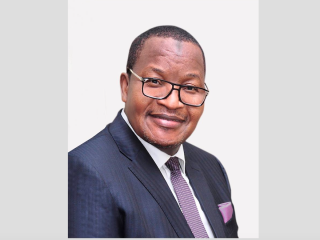Prof Umar Garba Dabatta, the erudite Executive Vice Chairman of the Nigerian Communications Commission (NCC) is a much decorated man. Even before he became the chief regulator of the Africa’s biggest telecommunications market, the professor of telecom engineering had already been a recipient of 18 distinguished awards and certificates of honour.
This is, perhaps, more than enough to make many achievers rest on their laurels, but not an already accomplished Danbatta, who came to the NCC as hungry for success as ever.
First, it was his assertive regulatory decisions that caught the world’s attention. He would follow the first impression with unveiling a roadmap. And no doubt the dividends of the diligent implementation of the 8-Point Agenda have attracted accolades and recognition from far and near, making his trophy cabinet brimmed with silverware.
In the collection, there are esteemed fellowships including that of the exclusive group of fellows of the Nigeria Academy of Engineering (NAE), the apex engineering body in the country and an honorary doctorate degree of science from the University of Jos.
Prof Danbatta was Chief Executive Officer of the Year (Tell Magazine), Regulator of the Year of African Leadership magazine, Telecom Personality of the Year at 12th Nigerian Telecoms Award, and Telecom Man of the Year 2017--Nigeria Tech Innovation & Telecom Awards (NTITA).
Similarly, he was Telecom Man of them Year 2018--Nigeria Tech Innovation & Telecom Awards (NTITA) Authority Newspaper Exemplary Public Service Award, 2017, Most Responsive CEO of the Year (Public Service) by House of Representatives Press Corp (2018).
At the organizational level, NCC, under him, took the European Award for Best Practices 2016 by an EU Organization, in Brussels Belgium, Quality Achievement Award for Best Practices by European Society for Quality Research (ESQR) 2017 and Exceptional Public Service Performance in the Platinum Category by the Bureau of Public Service Reform (BPSR).
Likewise, Leadership Newspapers adjudged the NCC, Government Agency of the Year 2017 among many other prestigious awards.
Yet like in the story of any other prophet, a recognition from home has a special place in the heart. And it’s the connotation of the award of regulatory excellence he received at the weekend in the ancient city of Kano.
Perhaps it’s even doubly significant because it came from an organization Danbatta has a deep emotional connection with, the Nigerian Society of Engineers (NSE), Kabuga Branch. “I feel humbled. This is one award we didn’t hesitate to accept. We normally evaluate awards given to us. And there are quite a few we’ve declined,” he explained while fielding questions from newsmen at the branch’s 2019 Awards Dinner Night in Kano. Professor Danbatta was, however, being modest, perhaps, to a fault.
As one of the aides at the centre of the evaluation, I know that we have been extraordinarily fastidious with awards, accepting only 30 percent of what have been dangled so far.
Yet describing the Kabuga award further as “exceptional” the NCC boss noted that he had been associated with NSE Kano Branch as one of its past chairmen.
“Kano branch gave birth to the Kabuga branch and Wudil branch, the two locations that I am very much associated with. Wudil was where I attended my secondary school and the Kabuga Branch is where I normally go every morning to deliver my lectures at the new campus of Bayero University Kano, BUK, for the past 30 years,” he further put into perspective.
However, while commenting on Danbatta’s intimidating but inspiring citation at the occasion, the Chairman of the branch, Prof O. A. U. Uche stressed on the
NCC’s boss remarkable feat in the area of broadband penetration in the country.
It could be recalled that Nigeria had a race against time to hit its broadband penetration target of 30% at the end of last year. There was a palpable concern that meeting the target would be a herculean task to achieve if not impossibility. Yet Nigeria would not only hit the target, it exceeded it in December last year. The broadband penetration in the country currently stands at more than 33%.
This is the reason perhaps he declared the readiness of the commission to drive any new target set by the Federal Government.
Nonetheless, with the licensing of Infracos (infrastructure companies) to deploy broadband fibre in all the 774 local government councils of the country concluded, Danbatta’s confidence is justifiable.

